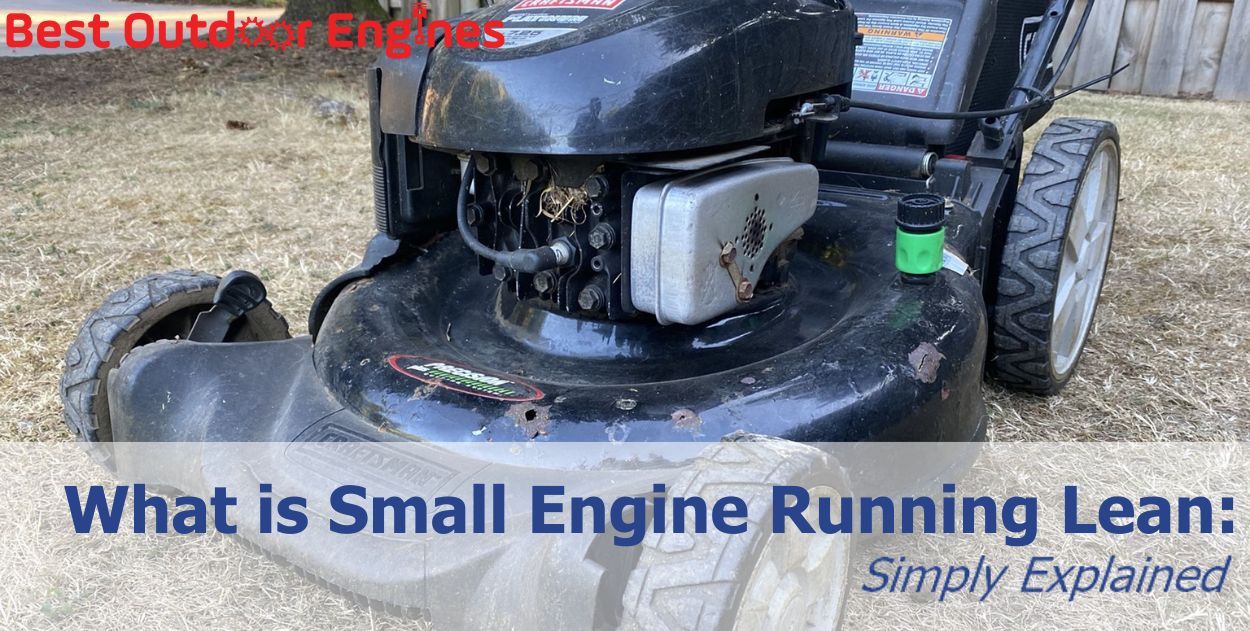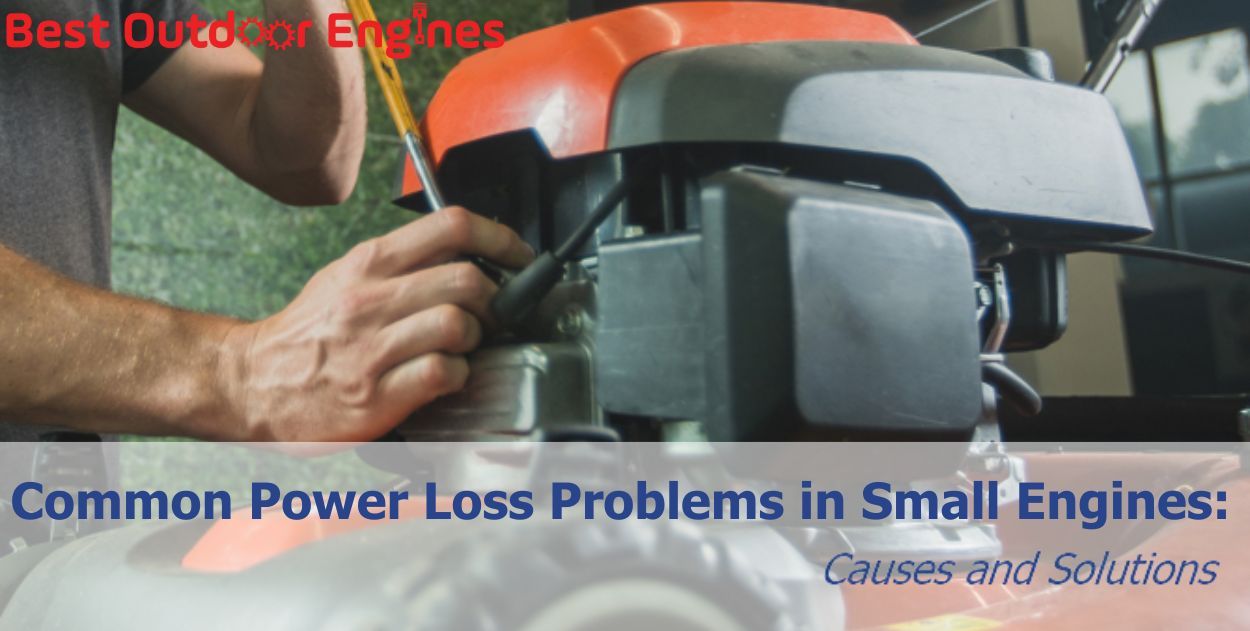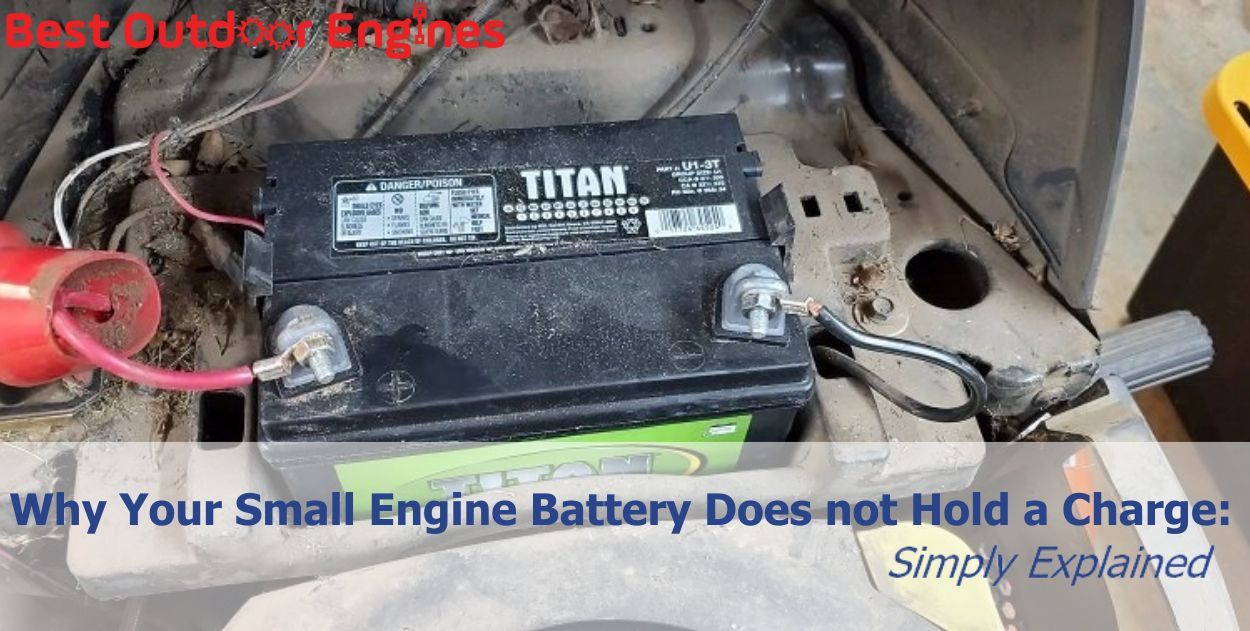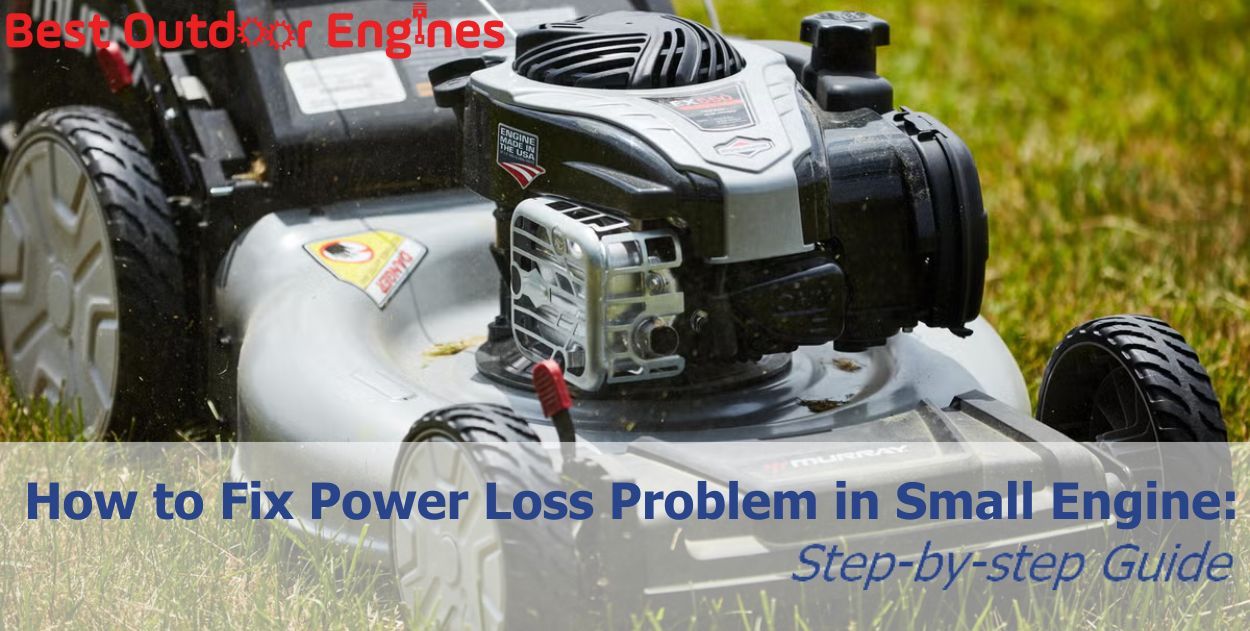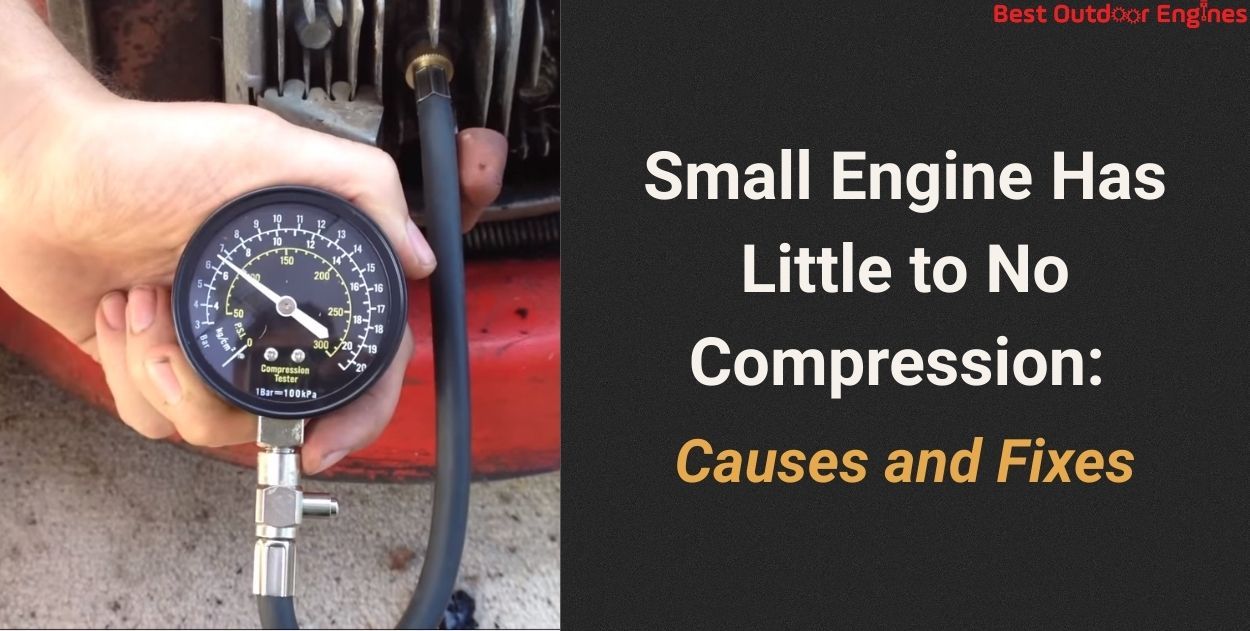What Is Small Engine Power Loss: Simply Explained
Small engine power loss refers to the reduction in an engine’s ability to generate its usual power output. This can manifest as sluggish performance, difficulty in starting, or an overall decrease in the engine’s efficiency. Understanding the causes of power loss and how to address them is crucial for maintaining the health and performance of your small engine.
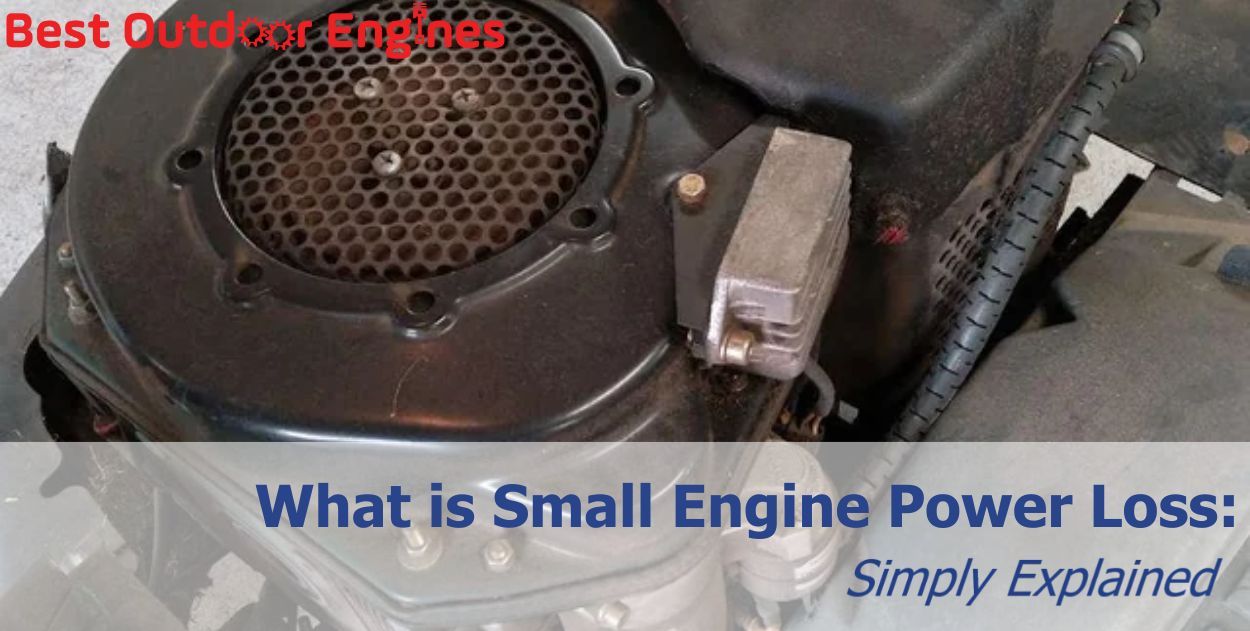
What Is Small Engine Power Loss?
Power loss on the small engine refers to a readily observable reduction of the power output capability of the engine. Power loss on an engine means that it is unable to hold or build up speed when being worked on, and the performance of the engine in the intended task, be it cutting of grass, generating of electricity or operating equipment is adversely affected.
Symptoms of Power Loss:
Early diagnosis of the symptoms that are common with power loss is likely to aid the individual from suffering from an extreme situation. The most differentiating signs of power loss are commonly:
- Slower Acceleration: The engine may cover the same distance within the same period, but this is not normal as it is expected of the engine. The engine will overdue its usual operating speed or will never come close to it.
- Reduced Cutting or Driving Power: In the case of lawnmowers or vehicles, the engine may be unable to cut through the grass or drive up the slopes, which may be higher than expected or gotten used to.
- Engine Stalling: The engine might quit running when placed under load, or it might just stop turning for no reason at all.
Increased Fuel Consumption: The engine is capable of completing a given exercise but fuel consumption goes up for reasons that are unexplainable and which are signs of lack of efficiency.
Fuel System Issues:
It is in the case of small engines where most power loss is attributable to problems associated with the fuel system. These problems include:
- Aged or Impure Fuels: In the course of use, one type of Fuels may get bad or get dirty, making it less flammable, and hence the reduction of the engine efficiency. Burning aged or low quality fuels results in the engine being power hungry since it will have to work hard to burn that fuel.
- Blocked Fuel Filters: The Fuel Filter is placed at the Fuel System so as to keep the dirty materials which can stain the fuel system. But as time passes, such filters, grab more and more dirt making the fuel stream restricted hence power loss. Blocked filter implies, the fuel pump and filter are doing their best to deliver clean fuel but the engine is not utilizing the fuel to the full capacity
- Defiled Carburetor: The carburetor is the component that combines fuels with air, and they are in the correct quantities suitable for burning. If the Tubes are full of dirt, the air-fuel mixture can be imbalanced causing the tank to be either too lean or too rich every combustion cycle and this will cause loss of power.
Difficulties in Fuel Air Supply:
The air supply is also important for the proper performance of the engine just as the fuel supply. Factors which cause air supply shortage and which lead to power loss:
- Blocked Air Filters: Air filters groomed with debris and dust are expected to be put into use. However, when these particular filters are abused with dirt, they will block and choke air from free to the engine. Choked air flow means the engine will not be able to proportionate the correct amount of air and fuel and therefore a surplus in the fuel mixture and consequent reduction in powered output will be promoted.
- Obstruction in Air intake: When the air intake is blocked, or choked, the engine does not obtain the air that it requires to work efficiently. This blockage may lead to starving of the engine which may result to a complete exerting of power.
Difficulties Related to Ignition System:
The ignition system performs a critical function, which is, igniting the air fuel mixture within the engine pistons. Defects in this system can lead to partial combustion and therefore loss of power. Problems associated with the ignition system that are prevalent include:
- Coked or Dirty Spark Plug: Spark plugs are indispensable in setting off the air fuel mixture. There are instances, however, when the spark plugs will fail to work and this will be diseased and carbon-fouled. This leads to a poor spark generation and thus, a series of misfires curtailing the amount of energy produced.
- Faulty Ignition Coils: The ignition coils delivers ignition spark which helps to ignite the fuel mixture. If these coils are defective or weak, the engine would not have a sufficient spark to ignite the mixture and it would cause an incomplete burning of the fuel and hence no power.
Mechanical Wear:
Internal engine components such as piston rings, valves and gaskets are components that may get eroded in the process due to the longer use. Such mechanical wear will cause loss of compression which is very important in generating engine power. Such concerns are;
- Worn Piston Rings or Valves: Piston rings as well as valves closing and opening should and have to do so in a way that a certain pressure and making sure no gas escapes in the engines. Absence of these components will make the engine to lose weight in compression making it ineffective thus poor power from the engine
- Leaky Gaskets: Gaskets are used for connecting several engine components and their purpose includes eluding fluids, fuel, or air from passing unnecessarily from their allocated places in the engine. Gasket not working causes loss of compression hence poor performance of the engine.
Efficiency Reduction:
Among the negative features of power loss, the efficiency of the engine suffers directly. If the brain is on power below that which is provided, for example, it may burn a higher content of fuel while giving less output. This condition, when neglected can lead tod higher costs of operation and lower the working effectiveness of the engine.
Increased Wear and Tear:
Power loss also increases the potential risk of components wear within the engine. This is due to the likelihood that powers lost fuel the engine to go the micromanagement of that basic activity, daily requirements such as fixing such as pistons, valves, and gaskets will be worn faster than normal. In the long run, this extra stress tends to result in more catastrophic failures and expensive repairs.
Operational Challenges:
Also power loss poses real life and practical constraints to the running of the engine. Example is a lawn mower which has power constraints may not be so effective in cutting grass to fine lawns or all the bulbs when connected to a generator may not light simultaneously as all do not receive enough power to remain alight. For such challenges, it may make the equipment practically useless and hence inflict emotional trauma.
Regular Maintenance Schedule:
Set forth and adhere to a regular maintenance schedule for the works performed to ensure that no power loss occurs. Obviously, this could include routine examination, cleaning, and replenishment of the components when need be.
Effective Methods of Storing an Internal Combustion Engine:
Ensure that the engine is properly taken care of during storage. This will help avoid problems associated with the worsening of fuel storage conditions and general wear and tear. In other words, use fuel preservatives, remove the battery and make sure that the engine is kept in a cool and non damp area.
Keeping Track Of Engine Performance:
Always assess the condition of the enginemand make it a point to rectify all the spotted anomalies regardless of the time taken to do so. This is because problems such as power loss will be avoided, and the engine’s lifespan will be increased. Diagnostic tools should also be used to keep track of the engine’s condition. Such tools may include compression gauges, multimeters etc.
A power loss in the small engine is one of the most common factors that one encounters which can practically hinder the effectiveness of the given equipment that one is using. But thanks to the understanding of these reasons and the use of the remedies and preventive measures recommended in this guide, it is possible to improve and preserve the engine. Regular maintenance of the engine, making sure that it is kept in its serviceable conditions, and carrying out repairs is important in eliminating the power loss problems and ensuring that the engine works as it is supposed to be.
1. What are the most common causes of a small engine power loss?
The most common causes include stale fuel, dirty air filters, worn out spark plugs, mechanical wear and tear, and blocked exhaust systems.
2. In what manner can a driver determine the possibilities of an engine failing to perform adequately?
Other indications include less acceleration power, wasteful fuel burning, starting problems, and abnormal sounds when the engine is running.
3. In a year, how many times usually will you change the air filter of your engine?
The necessity of making replacement parts of air filters should be done preventively and should account for the low and moderately polluted and dusty environments at least once every season or every 25-50 working hours, whichever comes first.
4. Would keeping fuel too long in the engine tank be detrimental in the long run?
Most of the time when good fuel is not used, it simply brings performance issues to the engine. However, if nothing is done to remedy this for a prolonged period, more serious issues, especially in the fuel system and carburetor, will be there.
5. How long can one go on the suspicion that there is power loss in an engine and only practice amateur mechanical troubleshooting?
Once you have done basic troubleshooting and the problem continues or there is a need for complex repairs to the engine, this is where the services of skilled mechanics are required.



